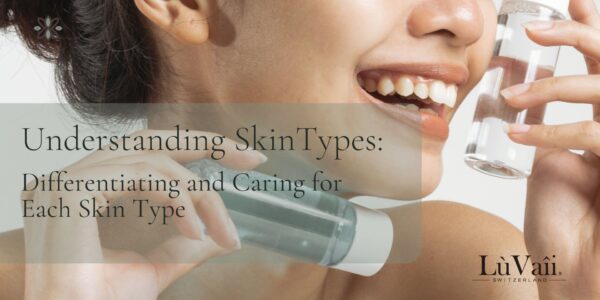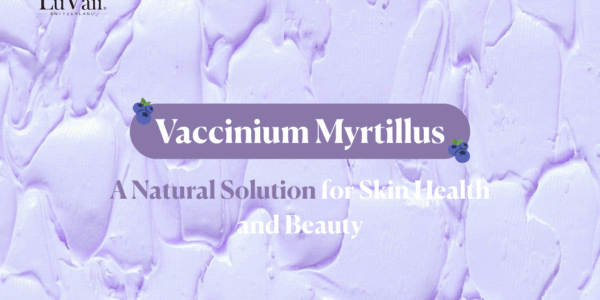
Table of content
Introduction
Oily and acne-prone skin is a common issue that many people face, especially for those with excess oil production. When the skin produces too much oil, it clogs pores and leads to acne. While acne can occur on all skin types, oily acne-prone skin faces additional challenges related to oil control and bacterial growth.
To improve oily acne-prone skin, it’s important to understand the causes behind it and adopt the proper skincare routine. This article will provide essential steps to improve oily and acne-prone skin, as well as common causes and methods to help maintain healthy skin.
Causes of Oily and Acne-Prone Skin
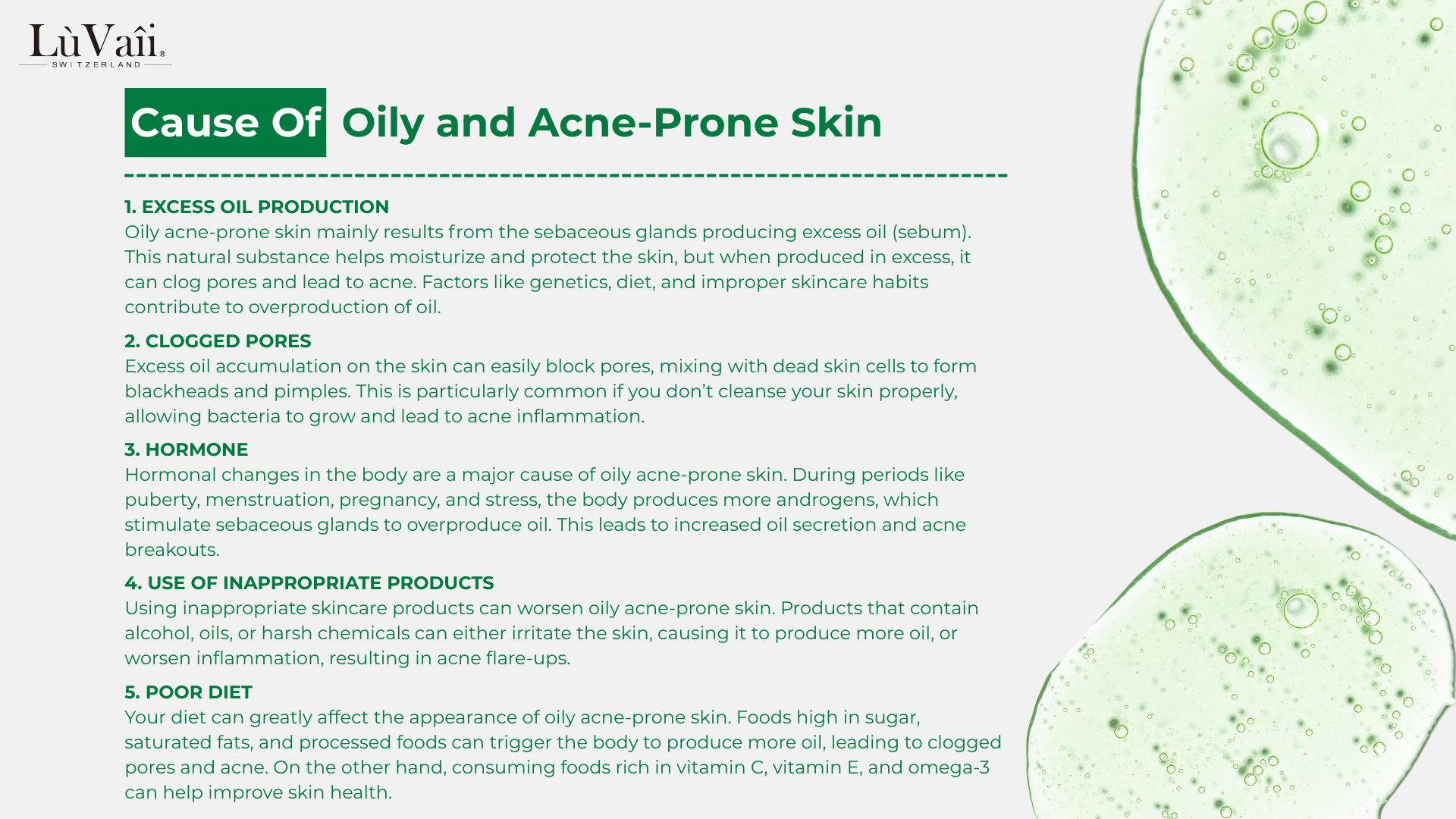
1. Excess Oil Production
Oily acne-prone skin mainly results from the sebaceous glands
producing excess oil (sebum). This natural substance helps moisturize and protect the skin, but when produced in excess, it can clog pores and lead to acne. Factors like genetics, diet, and improper skincare habits contribute to overproduction of oil.
2. Clogged Pores
Excess oil accumulation on the skin can easily block pores, mixing with dead skin cells to form blackheads and pimples. This is particularly common if you don’t cleanse your skin properly, allowing bacteria to grow and lead to acne inflammation.
3. Hormones
Hormonal changes in the body are a major cause of oily acne-prone skin. During periods like puberty, menstruation, pregnancy, and stress, the body produces more androgen,
which stimulate sebaceous glands to overproduce oil. This leads to increased oil secretion and acne breakouts.
4. Use of Inappropriate Products
Using inappropriate skincare products can worsen oily acne-prone skin. Products that contain alcohol, oils, or harsh chemicals can either irritate the skin, causing it to produce more oil, or worsen inflammation, resulting in acne flare-ups.
5. Poor Diet
Your diet can greatly affect the appearance of oily acne-prone skin. Foods high in sugar, saturated fats, and processed foods can trigger the body to produce more oil, leading to clogged pores and acne. On the other hand, consuming foods rich in vitamin C, vitamin E, and omega-3 can help improve skin health.
Effective Ways to Improve Oily and Acne-Prone Skin
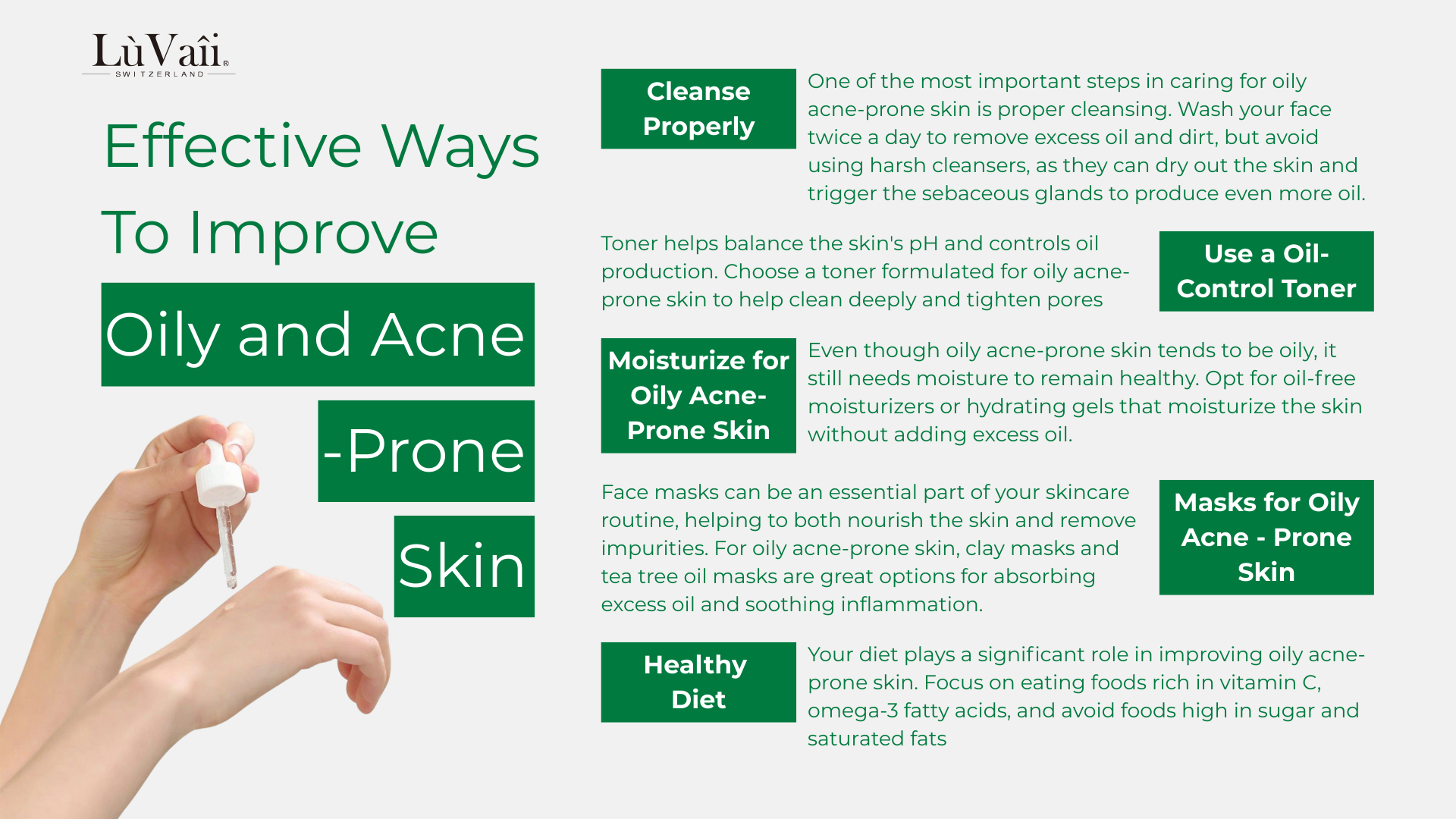
1. Cleanse Properly
One of the most important steps in caring for oily acne-prone skin is proper cleansing. Wash your face twice a day to remove excess oil and dirt, but avoid using harsh cleansers, as they can dry out the skin and trigger the sebaceous glands to produce even more oil.
Skincare Steps for Oily Acne-Prone Skin:
- Use a gentle, oil-control cleanser that cleanses the skin without drying it out.
- Cleanse twice a day: once in the morning to remove overnight oil buildup and once in the evening after wearing makeup or exposure to pollution.
- Use lukewarm water instead of hot water to cleanse, as hot water can dry out and irritate the skin.
2. Use a Oil-Control Toner
Toner helps balance the skin’s pH and controls oil production. Choose a toner formulated for oily acne-prone skin to help clean deeply and tighten pores.
Benefits of Toner:
- Deeply cleanses and removes excess oil and dirt.
- Helps tighten pores and reduce their size.
- Balances skin pH, preventing it from being too dry or too oily.
3. Moisturize with the Right Product
Even though oily acne-prone skin tends to be oily, it still needs moisture to remain healthy. Opt for oil-free moisturizers or hydrating gels that moisturize the skin without adding excess oil.
Correct Moisturizing Steps for Oily Acne-Prone Skin:
- Choose gel-based moisturizers that hydrate without clogging pores.
- Use serums containing ingredients like hyaluronic acid to quickly absorb and moisturize.
- Keep your skin hydrated to prevent it from becoming dry, which may cause the skin to overproduce oil.
4. Use Face Masks for Oily Acne-Prone Skin
Face masks can be an essential part of your skincare routine, helping to both nourish the skin and remove impurities. For oily acne-prone skin, clay masks and tea tree oil masks are great options for absorbing excess oil and soothing inflammation.
Effective Face Masks:
- Clay masks help absorb oil, remove impurities, and tighten pores.
- Tea Tree Oil masks help fight bacteria and soothe swollen pimples.
- Soothing masks containing aloe vera help calm the skin and reduce redness.
5. Adopt a Healthy Diet
Your diet plays a significant role in improving oily acne-prone skin. Focus on eating foods rich in vitamin C, omega-3 fatty acids, and avoid foods high in sugar and saturated fats.
Foods That Help Improve Oily Acne-Prone Skin:
- Fatty fish like salmon and mackerel, rich in omega-3 fatty acids, help reduce inflammation and support healthy skin.
- Fresh fruits like oranges, strawberries, and kiwi provide a good source of vitamin C.
- Leafy greens help detoxify the body and protect the skin from environmental factors.
Product Introduction: Anti Acne Lotion
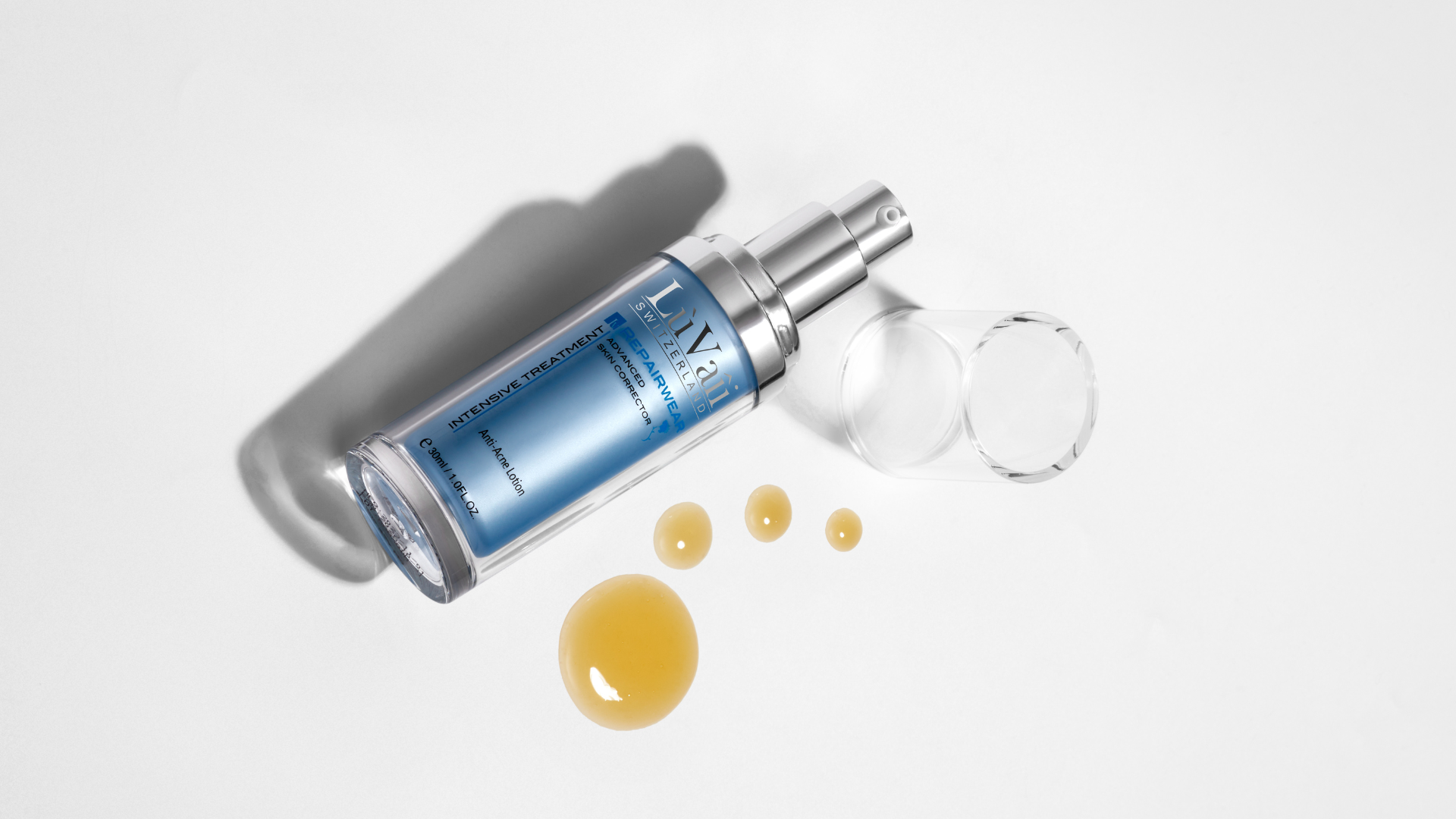
If you’re looking for a product to help improve oily acne-prone skin,, Anti Acne Lotion is a great choice. This product contains Tea Tree Oil, a prominent ingredient in acne skincare, that helps soothe the skin, control excess oil, reduce inflammation, and prevent breakouts. Anti Acne Lotion
not only deeply cleanses pores but also maintains moisture, leaving your skin healthy and smooth.
Frequently Asked Questions
- What is oily acne-prone skin?
Oily acne-prone skin has excess oil production, causing clogged pores and the formation of acne. This type of skin often feels greasy, especially in the T-zone.
- What is oily acne-prone skin?
- How do I control oil on acne-prone skin?
Use oil-control products like toners, gel-based moisturizers, and face masks to absorb excess oil without irritating the skin.
- How do I control oil on acne-prone skin?
- Should I use acne treatment products for oily skin?
Yes, but it’s important to choose products specifically formulated for oily acne-prone skin to avoid drying out the skin or causing irritation.
- Should I use acne treatment products for oily skin?
- Does diet affect oily acne-prone skin?
Yes, consuming foods rich in vitamins and omega-3s can help improve skin health, while avoiding foods high in sugar and fats will prevent excess oil production.
- Does diet affect oily acne-prone skin?
- How can I prevent acne from recurring?
Stick to a consistent skincare routine, cleanse your skin regularly, and use oil-free moisturizers to prevent excess oil buildup and acne formation.
- How can I prevent acne from recurring?
Conclusion
Improving oily acne-prone skin is not impossible. With the right skincare routine and product choices, you can control oil, reduce acne, and maintain healthy skin. Choose the right products and make dietary changes to ensure your skin stays clear and healthy. Regular care is key to achieving a flawless complexion.

